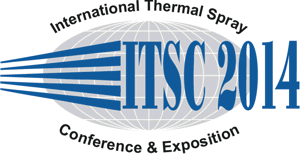
|
3794 |
|
Thursday, May 22, 2014, Hall A 2:00 PM Plasma Spraying 2 |
|
Plasma spraying of ceramics with particular difficulties in processing |
|
Georg Mauer* / Forschungszentrum Jülich GmbH, Germany Emine Bakan / Forschungszentrum Jülich GmbH, IEK-1, Germany Maria Ophelia Jarligo/ Forschungszentrum Jülich GmbH, IEK-1, Germany Alexandre Guignard/ Forschungszentrum Jülich GmbH, IEK-1, Germany Stefan Rezanka/ Forschungszentrum Jülich GmbH, IEK-1, Germany Nadin Schlegel/ Forschungszentrum Jülich GmbH, IEK-1, Germany Robert Vaßen/ Forschungszentrum Jülich GmbH, IEK-1, Germany |
|
Emerging new applications and growing demands of plasma sprayed coatings initiate the development of new materials. Regarding ceramics, often complex compositions are employed to achieve advanced material properties, e. g. high thermal stability, low thermal conductivity, high electronic and ionic conductivity as well as specific thermo-mechanical properties and microstructures. Such materials however, often involve particular difficulties in processing by plasma spraying. The inhomogeneous dissociation and evaporation behavior of individual constituents can lead to changes of the chemical composition and the formation of secondary phases in the deposited coatings. Hence, undesired effects on the coating characteristics are encountered. In this work, examples of such challenging materials are given, namely pyrochlores and perovskites applied for thermal barrier coatings as well as for gas separation membranes. Also new plasma spray processes like suspension plasma spraying (SPS) and Plasma Spray Physical Vapor Deposition (PS-PVD) are considered. By means of plasma and particle diagnostic methods, the processing conditions and thus the coating properties could be improved. |